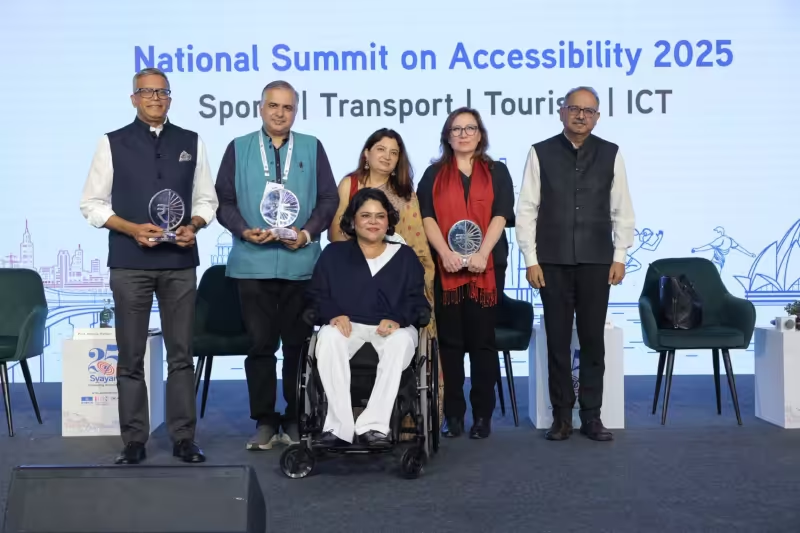
ICT Panel National Accessibility Summit 2025
At the National Summit on Accessibility 2025, experts and leaders emphasized the urgent need to make India’s digital and ICT ecosystems fully inclusive so that persons with reduced mobility and other disabilities are not left behind in the country’s tech-driven growth. Here are the key highlights: Core Themes - Accessibility as a constitutional right: Prashant Kumar Mittal (Deputy Director General, NIC) stressed that digital accessibility is not charity but a constitutional right and a driver of economic growth. He called for 100% compliance by 2047. - Bridging the digital divide: The summit focused on ICT, sports, tourism, and transport, highlighting that inclusion must be central to India’s development agenda, especially as the country prepares to host global events like the Commonwealth Games. - AI bias and inclusivity: Shilpi Kapoor (Founder, BarrierBreak) warned that AI systems carry inherent biases and urged that persons with disabilities must be included in the design and development process. Expert Insights - UNESCO perspective: Ma’aly Hazzaz (Advisor, UNESCO South Asia) emphasized designing systems with people with disabilities, not for them, and highlighted invisible disabilities often overlooked. - Indian innovation: Prof. P.V. Madhusudhan Rao (IIT Delhi) showcased success stories like the Smart Cane and accessible buses in Bengaluru and Mysuru, underscoring India’s potential to lead globally in inclusive tech. - Shared responsibility: Sminu Jindal (Founder & Chairperson, Svayam) noted that accessibility is a collective mission, not an isolated effort. Key Outcomes - Launch of the Prithvi Raj Jindal Visionary Scholarships to support inclusive innovation. - Announcement of the Svayam Accessibility Awards recognizing leaders in accessibility. - Release of a KPMG-Svayam White Paper outlining India’s roadmap toward a barrier-free future. Big Picture The summit made clear that accessibility is not just about compliance—it’s about national pride, economic opportunity, and ensuring that India’s digital revolution is truly inclusive. The message was simple but powerful: “Sabka saath, sabka vikas” must extend to digital ecosystems too.
